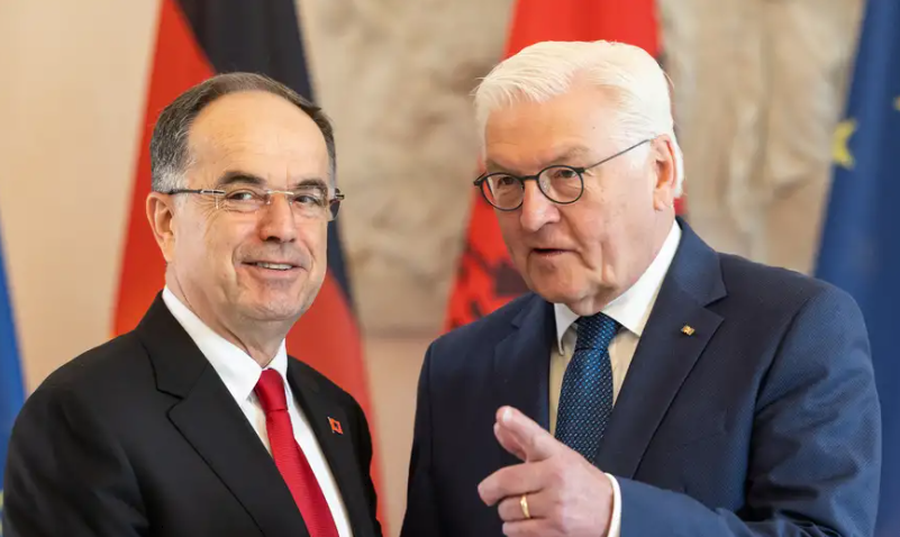
For Albania, approximation with the environmental standards of the European Union remains one of the biggest challenges on the path to membership. In this effort, Germany is one of Albania's most active partners,
Chapter 27 of the negotiations, which includes areas such as waste management, wastewater, energy and climate protection, requires major investments in infrastructure, as well as preparation of the administration for the implementation of European laws.
In this effort, Germany is one of Albania's most active partners, through projects financed by the German Development Bank, KfW, and the GIZ cooperation agency, in coordination with the European Union. Around 70% of German financial support focuses on the energy sector, while 30% on sustainable urban development, including waste treatment, recycling and environmental infrastructure at the local level.
"The objectives of economic development and nature protection must be combined and developed through a comprehensive dialogue, also within the framework of the EU integration process," said the German ambassador to Tirana, Karl Bergner. "These are fundamental requirements for many chapters that will be negotiated," he added.
Investments for a cleaner environment
For years, urban waste in southern Albania has been a source of pollution and concern for the local community. In Vlora, one of the most frequented tourist destinations during the summer, a new landfill in Sherishte has recently been put into operation, an investment of 25 million euros, of which 12 million in the form of a loan from the German Development Bank KfW and the rest a grant.
This landfill is designed to handle up to 600 tons of waste per day during the tourist season and is expected to replace the existing landfill, which has often faced fires.
"I am happy that with the work that the municipality has done and of course in full cooperation with the German Embassy and KfW, we managed to make it possible to put the first waste landfill cell into operation" - says the Mayor of Vlora, Ermal Dredha.
In the south of the country, in Orikum, another investment supported by the German government is nearing completion: a new wastewater treatment plant, worth 5.3 million euros. The objective is for it to be operational by September and serve around 53,000 residents of the area.
Alternative model for waste management
Unlike urban areas, an alternative model for waste management is being experimented in Roskovec, in line with the principles of the circular economy. Organic waste from the fruit and vegetable market, which previously ended up in landfills, is now processed in a small composting center and turned into fertilizer for agricultural lands.
The initiative is part of the "European Union for the Circular Economy and Liveable Cities" (EU4CELC) project.
Energy at the center of German support
Electricity is the sector where most of the German support for Albania is concentrated. One of the most strategic projects is the construction of the 400 kV Albania - North Macedonia line, with a total value of 67.5 million euros. The project, implemented in cooperation with the Ministry of Infrastructure and the OST, includes the construction of a new line of about 130 kilometers on Albanian territory, and is expected to be completed within this year.
"These investments help Albania's economic sustainability," says the German ambassador in Tirana.
The line aims to increase energy security, reduce network losses and enable balanced exchanges with neighboring countries, as part of Albania's integration into the European energy market.
"This project means energy security, security in the energy system, but we are also connected to all our neighbors," said Dorjan Sejamini, director of external projects at OST.
Long-term partnership, not only in infrastructure
In addition to infrastructure investments, the German partnership in Albania also aims to strengthen administrative and technical capacities. According to the German ambassador in Tirana, this is of crucial importance to ensure that these projects remain functional and sustainable even after the end of international support.
"This is a lesson we have learned from other countries: it is essential to strengthen local capacities to be able to manage projects after the Germans withdraw," said Ambassador Bergner. He stressed that support will continue, especially in the process of integration into the European Union, including new opportunities such as administrative partnerships, to help Albania effectively implement EU legislation. "We will focus in particular on the issues raised, for example, in the latest EU progress report, in the areas of the so-called "foundations", which are: the rule of law, good governance and the fight against corruption," the ambassador added.
Germany remains not only the oldest financial cooperation partner with Albania since 1988, but also the bilateral donor with the largest contribution. To date, investments amount to around 1.2 billion euros, of which over 400 million in the last decade alone. "This is further proof of Germany's continuous and serious commitment," says Ambassador Karl Bergner./DW (A2 Televizion)











